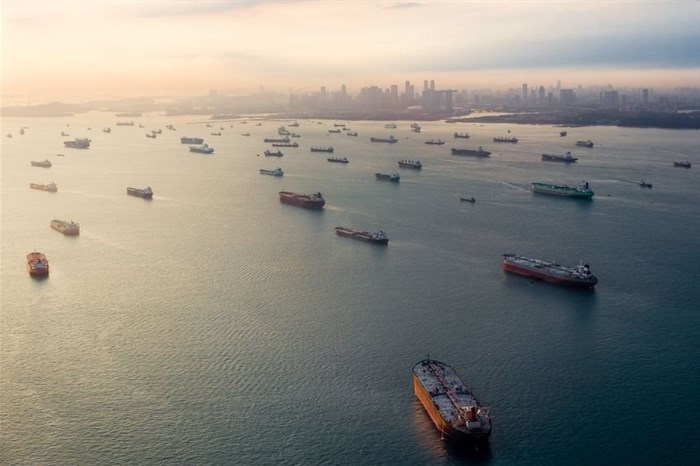






IMO 2020 reduces the limit for sulfur in these fuels to just 0.5%, down from 3.5%. International sea transportation generates about one billion metric tons of carbon dioxide each year, which corresponds to 3% of all fine particulate matter created by human activity. In light of this, IMO 2020 is an important step towards achieving a better ecological balance sheet for the industry. As a logistics provider, Dachser does not operate its own ships but works with major shipping lines like Maersk, Hapag Lloyd, and others.
In the future, these companies will have a number of more environmentally friendly options available to them. For example, they may choose to continue using heavy oil but also install special exhaust gas cleaning systems (scrubbers). Or they may go for a cheaper and more technically feasible option, which is to switch to alternative fuels such as liquefied natural gas (LNG), very low sulfur fuel (VLSF), or marine diesel oil (MDO) sein. The relevant country’s port authority is responsible for compliance with IMO 2020 and can check this with a detector and the ship’s logs. Violators will be subject to fines, ship detention, or even imprisonment.
Regardless of what option shipping operators choose, IMO 2020 poses huge challenges for their industry. Costs will go up, market share may shift among the various sectors (project cargo shipping versus container ships or bulk carriers), to say nothing of the expected impact on refineries and global oil markets.
Nevertheless, the shipping lines are rising to the challenge - not only because they have to, but because they are pushing themselves to achieve a better ecological balance sheet. Many carriers have already developed models that allow their customers to calculate fuel costs and allocate them to their sources more accurately.
"Naturally we, too, are interested in finding the most sustainable way to handle our transport," says Rolf Mertins, head of global management ocean at Dachser. "At the same time, we want to offer our customers scheduling reliability. That’s why, based on collaboration with our partner carriers, we’ve developed our own fuel cost model, the Dachser Bunker Adjustment Reference Floater."
Replacing the Standard Bunker Factor (SBF), the DBAF is calculated based on the fuel prices of all relevant trades and is intended to ensure that customers’ fuel-related costs are covered irrespective of the carrier option.